Hypersalivation is a serious disease associated with increased secretion of the salivary glands. The presence of increased salivation in infants from 3 to 6 months is considered a natural phenomenon that does not require drug intervention. However, in an adult this pathological condition, as excessive drooling, not only causes discomfort in everyday life, but also indicates serious problems with health.
Initial signs of hypersalivation
Typically, during normal salivation, about 2 ml of saliva is released every 10 minutes. If this figure in an adult increases to 5 ml, then so-called hypersalivation occurs.
Increased salivation is accompanied by the presence of oral cavity excessive amounts of liquid. This leads to a reflex swallowing or the desire to spit out the accumulated salivary secretions.
In children with excessive salivation, the mouth remains wet all the time, and the clothes around the chest are damp. They may also constantly choke on secretions from the salivary glands in their mouth. After sleep, the presence of saliva stains on the pillow indicates possible problem salivation. Also, signs of hypersalivation include changes in taste sensitivity, and sometimes nausea and vomiting, but these symptoms are quite rare.
Causes
There are many reasons that can cause hypersalivation.
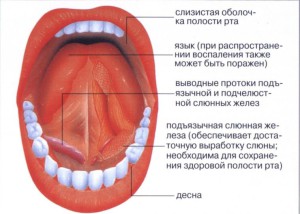
Excessive salivation is a direct indicator of health problems. In addition, drooling flows profusely when it acts as a reaction to certain stimuli, or as a consequence inflammatory process in organs. Excessive salivation may be a sign of infection in the body or a symptom of a neurological disease.
In adults - men and women
Among the main causes of excessive drooling in adult men and women are:
Why do children drool?
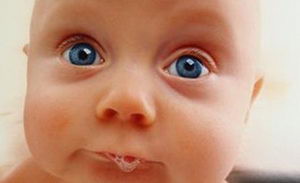 As for children, up to one year of age, increased drooling is the norm. The main reason for high salivation is unconditioned reflexes. Another one natural cause associated with the eruption of the first milk teeth. Both factors do not require treatment. Also, increased salivation can serve as a protective reaction of the child’s body. Bacteria are removed along with saliva.
As for children, up to one year of age, increased drooling is the norm. The main reason for high salivation is unconditioned reflexes. Another one natural cause associated with the eruption of the first milk teeth. Both factors do not require treatment. Also, increased salivation can serve as a protective reaction of the child’s body. Bacteria are removed along with saliva.
However, there are a number of more serious reasons why a high amount of drool collects in a child’s mouth:
- Helminthiasis. The most susceptible to helminth infestation are Small child, as he puts foreign objects into his mouth and bites his nails.
- False hypersalivation. It occurs in infants due to impaired swallowing, which is caused by paralysis or inflammation in the pharynx. Saliva production remains normal.
- Problems in the gastrointestinal tract.
- Viral diseases.
In older children the problem may be related to psychological processes. With the development of higher nervous activity children are susceptible to sudden emotional experiences, which promotes abundant saliva secretion.
During pregnancy
Most often, hypersalivation occurs in the early stages of pregnancy, being a consequence of toxicosis and frequent vomiting. Trying to stop an attack of vomiting at an early stage, pregnant women involuntarily reduce the frequency of swallowing, which leads to a feeling of excess saliva. Salivary glands however they work fine.
The second possible cause of increased salivation during pregnancy is called heartburn. The secretion of saliva softens the acid. Another significant factor in impaired salivation during pregnancy is increased sensitivity to all medications.
What does involuntary drooling during sleep mean?
At night, the amount of saliva produced is less than when a person is awake. If traces of saliva on the pillow begin to appear regularly, this indicates hypersalivation. Its causes in a dream may be:

Diagnostic methods
Diagnosis of the problem comes down to a number of activities:
- Drawing up a general picture of the state of health based on existing symptoms and analysis of a person’s vital activity.
- Examination of the mouth, throat, and tongue for ulcers, injuries and inflammation.
- Enzymatic analysis of salivary secretions to determine their quantity.
- Additional consultation with other specialists. These include a dentist, a psychiatrist and a neurologist.
Treatment of increased salivation
Prescribing appropriate treatment for hypersalivation directly depends on the factors that provoked it. Therapy is often aimed not at reducing the amount of saliva produced, but at eliminating the very cause of the problem.
However, there is treatment that is directly designed to help cope with hypersalivation:

How to stop swallowing with folk remedies?
You can overcome the problem of increased secretion at home with the help of folk remedies. However, it is important to understand that they are only auxiliary. Consultation with a doctor is required. Main folk method is rinsing:
- A decoction of chamomile, nettle, oak bark or sage. Allows you to temporarily reduce symptoms. For 1 tablespoon herbal collection You will need half a liter of boiling water. Leave for 40 minutes. Carry out 4-8 rinses per day.
- Tincture of viburnum. Do it 3-5 times a day. Crush 2 tablespoons of viburnum and add 200 ml of water. Let it sit for about 4 hours.
- Tincture of water pepper. For 1 teaspoon of pharmaceutical composition you need to take a glass of water. The minimum course of rinsing is 10 days. Rinse after eating.
- Tincture of shepherd's purse. The proportion is: 25 drops of liquid per 1/3 glass of water. Rinse after every meal.
- Brine cabbage.
- A weak solution of potassium permanganate.
 Also effective way is tea or plain water with a few drops of lemon juice. Sometimes vegetable oil is used to combat hypersalivation.
Also effective way is tea or plain water with a few drops of lemon juice. Sometimes vegetable oil is used to combat hypersalivation.
As a preventive measure, it is worth following a number of recommendations that can not only prevent excessive salivation, but also increase resistance immune system, and improve overall health. Necessary:
- reduce the presence of salty, spicy and fatty foods in the diet;
- adhere to proper nutrition;
- stop drinking excessive alcohol;
- quit smoking;
- monitor oral hygiene;
- get enough sleep;
- take regular walks in the fresh air;
- exclude stressful situations and unnecessary worries;
- rinse your mouth with an antiseptic decoction of chamomile or oak bark;
- visit the dentist regularly;
- undergo medical examinations to monitor your health.
Having a cat in the house, many people do not think about its possible drooling. But when faced with this problem, the owner begins to look for how to deal with it. Therefore, you need to know in advance the causes of drooling in cats in order to prevent a similar disease in your pet in time. And then the animal will be able to thank you with its surprisingly good mood.
Process Features
In the animal's body, saliva performs a number of important functions. First of all, it protects the cat’s teeth, gums and oral mucosa from any damage. It softens food to make it easier to swallow. And besides, it stimulates the receptors of the tongue.
This fluid is constantly produced by your pet's salivary glands. And when strong salivation occurs, it, accordingly, flows abundantly from the cat’s mouth. This process is called hypersalivation. And there can be many reasons for this phenomenon.
Clear signs
When any disease manifests itself in a cat, it cannot approach its owner and tell him about it. Therefore, you need to constantly monitor your pet, especially the process of drooling. After all, any disease can turn into a chronic disease.
Signs that your cat is drooling continuously:
- wet neck, chin and fur on the pet’s chest;
- the animal regularly swallows saliva;
- washes his face very often;
- rubs against furniture and corners in the house;
- the pet’s tongue is sluggish, sometimes even falls out;
- You can see wet spots in the animal's sleeping area.
If the owner sees similar behavior in his cat, he should immediately seek help from a veterinarian.
Why is this happening
There can be a number of reasons why a cat may be drooling. They are divided into several categories. And according to this, you can easily determine why your pet is drooling so profusely.
Main reasons
Most serious illness there may be an infection or even the presence of a neoplasm in the animal’s body. In the case of such a disease, extremely profuse salivation is observed. The situation is similar when a cat is poisoned. In addition to increased drooling, the pet appears lethargic, loses appetite, and may vomit.
In case of problems associated with the oral cavity, they are also characterized by excessive salivation. In addition, the cat will chew food carefully and slowly and have difficulty swallowing it. At the same time, the language pet protruded and, with the exception of profuse drooling, will bad smell from mouth.
Such symptoms are the cause of gastrointestinal diseases. In addition, it may be allergic reactions or the presence of helminths in the pet. And this can be triggered by untimely treatment for worms or a late vaccination.
More dangerous disease is rabies. And when a cat drools from its mouth due to the presence of this disease, it is necessary to begin treatment immediately. After all, such a disease is considered very dangerous not only for animals, but also for humans.

Drooling as a side effect
There are a number of reasons why such a reaction occurs in the body to various changes what happens to the pet:
- After a huge shock, resulting in frustration nervous system animal.
- Before eating, cats show an increase in salivation.
- During treatment, when the pet is given pills that taste bad.
- When I offer a cat a new food that tastes different from the previous one.
- As a result of excessive contact with children.
- In some animals it is a reaction to the caress of the owner.
All of the above reasons cause increased drooling in cats, and this directly affects their health. Therefore, it is necessary to diagnose the disease in a timely manner and immediately begin to treat it.
Necessary actions of the owner
In case of excessive drooling in cats, a constantly protruding tongue, or other unnatural behavior, you should immediately contact a veterinarian. He will order certain tests or examine your sick pet to make a diagnosis. And only after this it will be possible to begin treatment.
When visiting a doctor, you need to describe in detail the last few days, during which the cat has been drooling. What was the appetite, changes in the character of the animal and its appearance. No less important information include information about vaccinations, medications used, and possible exposure to toxins. This way you can find out why your cat is salivating heavily and prescribe the correct treatment.
If a pet is found in the throat foreign body, then the veterinarian should remove it. This can be determined after the doctor sees and examines the x-ray. And only then, having removed a bone or even a toy, the doctor treats the oral cavity with a disinfectant so as not to introduce an infection into the wound.
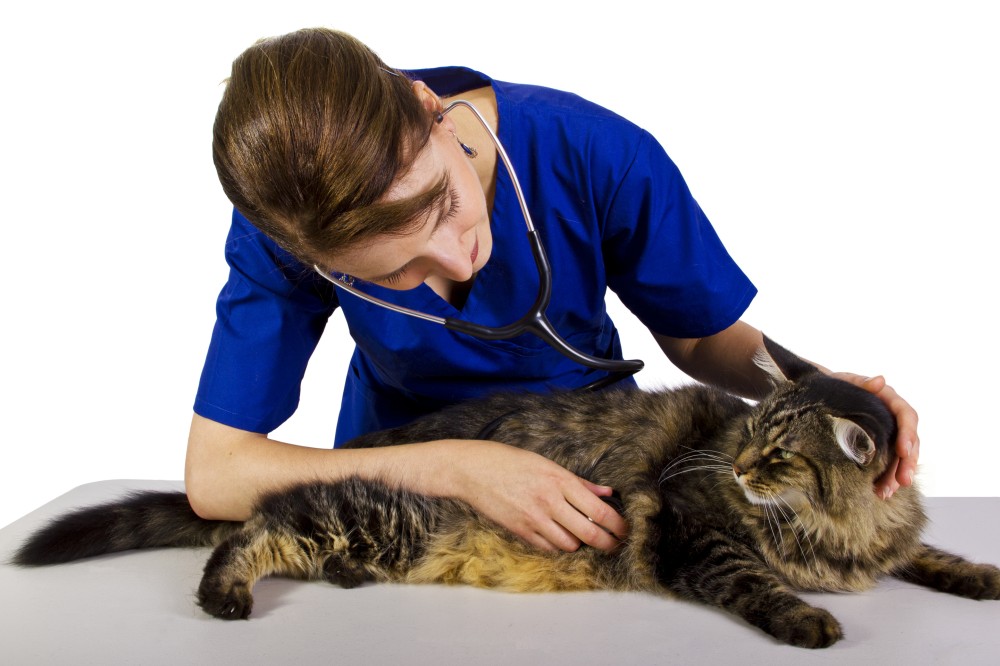
Treatment options
A necessary criterion for determining excessive drooling is passing all the tests prescribed by the doctor. If this is feces and blood, then with their help you can find out about the presence of helminths in the animal. If you donate urine, the results will show possible changes in genitourinary system pet.
After passing all necessary tests and other procedures, the veterinarian will be able to find the cause of excessive salivation. In addition, he will make an accurate diagnosis and give recommendations regarding treatment. And it will contribute to the cat’s recovery and at the same time increase the function of the salivary glands.
When a doctor discovers injuries or wounds in an animal’s mouth, he prescribes certain drops and ointments. The first product should be dripped onto the cat's tongue, and the second should be lubricated on the throat and inside of the mouth. This is necessary for the healing of wounds and the recovery of the pet.
In more serious cases it is necessary full diagnostics. It will help determine the causes of excessive salivation, the degree of the disease and possible ways his treatment. In some cases, hospitalization may be required.
Preventive actions
When your cat starts drooling, you should immediately contact your veterinarian. But sometimes, in order to prevent such situations, it is necessary to prevent such diseases, especially excessive drooling. And in the future you won’t have to worry about your pet’s health.
- Regularly clean the animal's mouth (teeth, tongue).
- Flea drops should be applied to the fur in places where the cat cannot lick them off.
- Carry out deworming at the required time.
- Regular medical examinations to avoid serious illness.
Only such prevention will help your pet not get sick. After all, constant monitoring of the cat’s health will not contribute to excessive salivation.
Should I be concerned if my cat is constantly licking itself? In some cases, the owners' fears are indeed justified, but more often than not, the pet's behavior can be explained after a short observation. Your job is to cover as many suspicious signs and possibly symptoms as possible.
Many owners find it funny if a cat licks itself frequently. However, there is nothing funny about intensive care unit saliva, because that’s why a cat licks itself. Your pet is not necessarily sick; they may be experiencing discomfort or stress. When it comes to illness, in addition to frequent licking, clinical picture there are more clear symptoms. In any case, if your ward licks himself too often and intensely, his behavior needs to be observed.
Licking as a natural reflex
The reasons for frequent licking are often explained unconditioned reflexes, more precisely, natural reactions of the body. A cat begins to intensively produce saliva if it smells food. Your charges’ sense of smell is much stronger than yours, and the volume of saliva produced depends on the degree of hunger. The cat also licks itself because the mucus covering its nose enhances the sense of smell. By licking its nose, the cat helps itself to smell. If you watch your cat while she is waiting for food, you will notice that she swallows her saliva more often and smacks her lips a little.
Note! Immediately after waking up, and sometimes during sleep, the cat licks its nose to moisturize the skin. While the animal is sleeping, the intensity of the mucous membranes decreases.
Licking can often be associated with thirst. Cats kept on commercial diets should have easy access to water, even if you are at work. Consider purchasing an automatic waterer if your pet doesn't get enough water. Be careful and make sure your pet is drinking enough water, as dehydration is dangerous. In summer, the water needs to be changed several times a day, after washing the bowl to remove plaque. By the way, if you have the opportunity, give your cat only purified water; it quenches thirst better and does not harm your pet’s kidneys.
Note! If your cat does not drink, be sure to consult a doctor and do not delay. Lack of desire to drink during the day indicates bad feeling and already dangerous condition pet.
A cat licks its face if it is worried or has another kind of experience. In a state of excitement, the tailed dog may begin to diligently lick its sides and paws, while from the outside it seems that the pet is being bitten by fleas. Emotions play an important role in the life of an animal, but they rarely threaten health. Essentially, any excited state, be it joy or fear, leads to increased saliva production and frequent licking.
Licking as a symptom
Licking the face and licking the body may indicate the presence of some kind of illness. Naturally, diagnosis is carried out taking into account all symptoms, and not just behavioral signs.
Analyze whether you have changed your pet’s diet in Lately? Perhaps the store did not have the usual food and you purchased its analogue or food with a different composition. If this happens and the cat begins to lick itself more intensely, carefully study the composition of the food, it may contain salt is present or other, not very useful additives.
A similar situation can be observed with a natural type of nutrition. Any store-bought product or food that has expired can cause a reaction. Until the circumstances are clarified, try to provide your pet with comfort and plenty of fluids. You need to understand that the animal may suffer from food or non-food allergies, so analyze the situation as a whole, taking into account the material of the bowls and the composition detergents that you use. In addition to frequent licking, during allergies, itching, increased lacrimation, and swelling of the mucous membranes may be observed.
Note! It is strictly not recommended to use salt when preparing food for your cat. In low-quality feed, salt is used as a preservative.
Many cats over 5 years of age develop dental problems ailments. Toothache leads to the fact that the cat suffers, does not eat and often swallows. Bleeding and periodontal diseases lead to foul breath and the constant presence of a putrid taste in saliva. Frequent licking can reduce discomfort and partially get rid of the unpleasant odor.
Important! Dental problems may be associated with a violation of the acid-base balance or bacterial damage to the mucous membranes of the mouth.
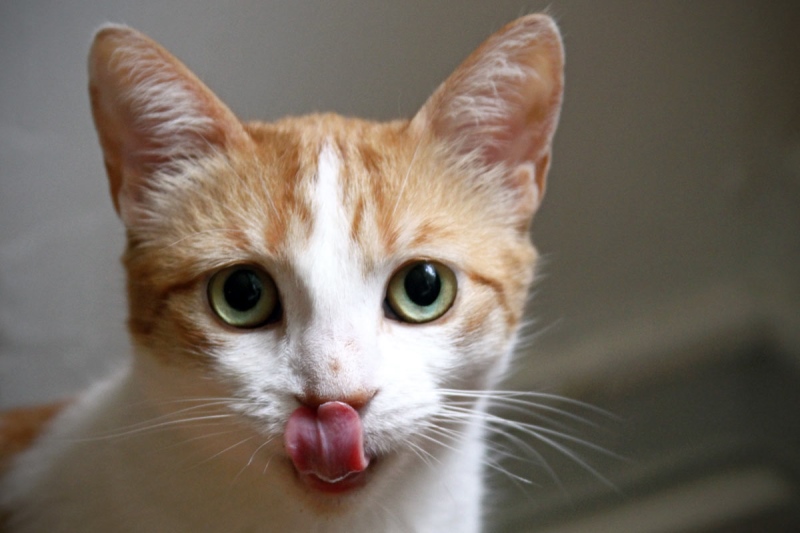
Cats get sick with dysbacteriosis and suffer from heartburn. All these conditions lead to oxidation of saliva, which leads to an uncomfortable sensation in the mouth. The problem is that what bigger cat licks, the stronger the discomfort, relief comes only for a moment. Acidic saliva entering the nasal membrane leads to irritation of the mucous membranes and the reaction continues in a circle. Even absolutely healthy cat will suffer from heartburn if you choose dry food poorly.
Important! Excessive salivation, frequent swallowing and licking of the muzzle may indicate an attack of nausea.
If the general clinical picture includes apathy, lack of appetite, frequent gagging and licking of the muzzle, you need to make sure that nothing stuck in your pet's teeth. Cats are very curious and can try anything unfamiliar. A foreign object stuck between teeth can cause very copious discharge saliva. A more severe case is ingestion of a foreign object which cannot leave the digestive system naturally. Without timely help, a cat may die, especially if it is a piece of oilcloth that cannot be detected during a standard examination. The doctor can confirm this diagnosis by x-ray with a contrast agent.
If your cat is drooling heavily, you need to make sure it doesn't. Excessive salivation indicates nausea, which is typical during intoxication. Even if only at home, a cat can become poisoned. It is important to understand that poisoning can not only be food poisoning; an animal can become intoxicated by inhaling carbon monoxide or coming into contact with toxins.
If the cat has access to the street, the spectrum possible reasons poisoning is much wider. The poisoned one is clumsy and the cat can easily catch him. Some animals tend to pick up carrion, and this is a very high risk of poisoning. Insecticides that are sprayed on plants can enter the animal's body through the skin (paw pads). Poisoning has a number of typical signs:
- Abundant.
- , in case of poisoning with poisons, there may be blood in the stool.
- There is almost always a decrease in the body.
- The cat constantly swallows saliva and “spits” with its mouth.
- The mucous membranes of the eyes and mouth turn pale or acquire a blue tint.
- If the animal does not receive help or the intoxication is very severe, symptoms may occur.
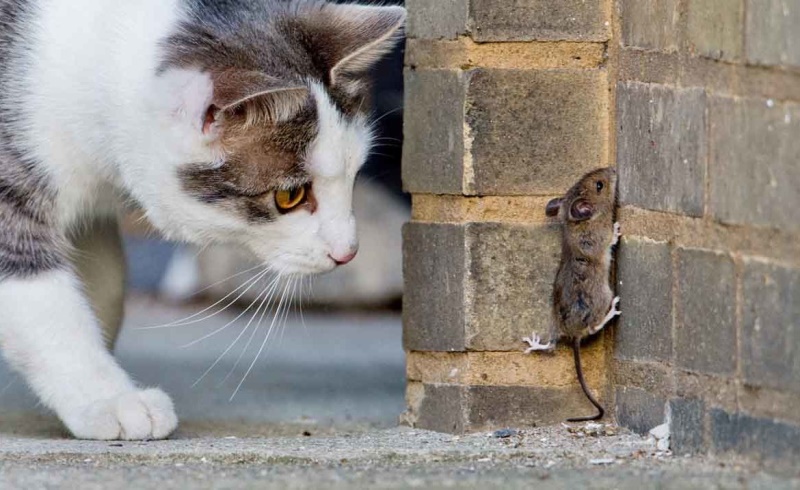
Nausea and increased salivation may indicate pathologies:
- Kidney and genitourinary system.
- Liver.
- Gallbladder and ducts.
The difficulty is that almost all of the above ailments begin with intoxication, the cause of which cannot be identified. The owner learns that a cat has developed a pathology (usually) much later, when more severe symptoms appear. severe symptoms. If you do not want to waste time, it is better to immediately consult a doctor and insist on examination and tests. Symptoms that you may notice without going to the clinic are:
- Ammoniacal or unnatural the smell of saliva(may indicate problems in the oral cavity).
- Vomiting with yellow foam, especially in the morning.
- Refusal to drink or drinking too much.
- Small volume of urine due to heavy drinking.
- Yellowness of the mucous membranes.
When all of the above reasons are excluded and the doctor does not see other problems with the animal’s health, there remains another option - behavioral problems or a mental disorder. It is worth understanding that such assumptions can only be made after long-term observation, since the cat’s behavior is very much related to its temperament and degree of irritability.
If a person feels a lump in his throat, there can be a variety of reasons for this. If there is a feeling that there is something extra in the throat that interferes with breathing, speaking and eating, and also simply does not allow you to calmly exercise daily life, you definitely need to think about it and find the reason, and then effectively get rid of the disturbing problem. This disease has been known since the time of Hippocrates; it is believed that he was the first to describe the sensation of a lump in the throat in his treatises.
Symptoms of the disease
Typically, if a patient complains of such a problem, he experiences the following symptoms:
- a feeling that there is something extra in the throat that is getting in the way;
- difficulty breathing occurs, difficulty swallowing food;
- a person begins to fear for himself and his life (choking, suffocating, this feeling is especially strongly experienced in a dream);
- there is soreness, soreness, and other unpleasant sensations in the throat;
- it is difficult to speak, the voice loses its strength and sonority, becomes hoarse;
- the person experiences extreme thirst, a desire to drink, and the throat is constantly dry;
- a lump that so interferes with normal functioning, you always want to swallow it, cough it up, or get rid of it in other ways;
- It's like there's something pressing on my throat.
The feeling of a lump in the throat can be experienced both constantly and during any situations, such as excitement, fear, a feeling of internal discomfort, stress. It can occur during or after a meal, usually accompanied by a feeling of heaviness in the stomach along with belching and nausea. A lump in the throat can be felt if a person’s body takes one or another position in space.
Etiology of the disease
The causes of a lump in the throat can be very different. The most common reason for this phenomenon is the so-called “hysterical lump”, which occurs against a background of nervous stress and anxiety, making itself felt in moments nervous tension. If you do not bring your daily life back to normal and do not get rid of excessive stress, then this phenomenon will develop into a chronic condition. psychosomatic illness. It will bother you and remind you more and more often, and then it will be almost impossible to get rid of it. There are other reasons, but less common ones, that cause this feeling:
Inflammatory, in various phases and forms, ranging from harmless, at first glance, infectious and colds, ending with such serious ailments as a cyst in the pharynx. It’s as if there is something extra in the throat that you constantly want to get rid of by coughing; you constantly experience unpleasant sensations in the throat when swallowing.
Pathologies at work endocrine system, and specifically, at work thyroid gland.
Salivary fluid is secreted in insufficient quantities, which is why a person experiences a dry throat and a feeling of a lump in the throat when swallowing.
Problems with the digestive system, most often a dysfunction of the esophagus.
Diseases respiratory system, when the nose is so clogged with mucus that it begins to flow down the back wall of the nasopharynx and gets stuck in the throat in the form of a lump. With single rhinitis, sinusitis and sinusitis, this condition rarely occurs, however, if the above-mentioned diseases are chronic in nature, they may well develop into a serious form.
A lump in the throat may occur as a consequence of a strong, hacking cough that a person suffered from some time ago.

Inflammation lymph nodes in the neck and jaw area also causes unpleasant symptoms in the throat.
Disturbances in the functioning of the cervical joints, which can be caused completely various factors: incorrect lifestyle and voluntary refusal to monitor one’s health, age-related changes in the structure of joints, mechanical injuries and cervical injuries.
Tumors in the neck area can cause a lump in the throat. These are also problems with the nerves that are located in the neck. An uncharacteristic manifestation of an allergic reaction.
Side effects that occur due to long-term use of any medications or due to uncontrolled use of medications and without the recommendation of the attending physician cause a feeling of a coma.
Diagnostic methods
Who in the throat needs attention. If such or similar signs do not give a person peace, then there is no need to guess what it is connected with, but immediately go to the doctor and find out what is the matter. First of all, you need to contact your local physician, who will tell you what to do, what tests to take and what procedures to undergo. Tests that need to be taken to clarify and confirm the diagnosis:
- general analysis blood and general urine analysis;
- blood chemistry;
- general examination of the thyroid gland;
- X-ray of the cervical spine.
After consultation will take place see a therapist and all initial tests will be taken; you will also need to be examined by other specialists. If a person feels a lump in his throat, only a competent specialist can tell what it could be.
Seeing an ENT doctor is necessary because very often the cause of the feeling of a lump in the throat can be infections respiratory tract, diseases of the throat and larynx of a chronic or isolated nature. In order to make sure of this, the doctor will take a swab from the patient’s mouth for analysis and study its microflora; based on this analysis, it will be possible to draw a conclusion about whether there is some kind of destructive microflora or whether the reason is something else. If the fears are confirmed, the doctor prescribes irrigation procedures with minerals that have a positive effect on back wall nasopharynx and the condition of the oral cavity in general. If necessary, physiotherapy, various warm-ups and UHF procedures are prescribed. And also, the doctor will give several practical advice about how to avoid relapse of the disease if treatment is successful the first time. If any tumors are found in the throat, the patient will be offered surgery and mechanical removal of the tumor from the pharynx area.
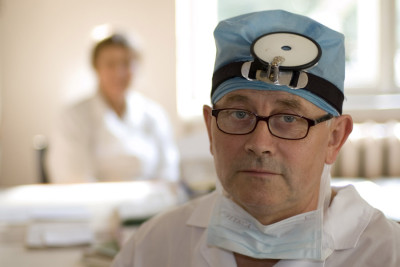
An endocrinologist should examine the thyroid gland for growth and enlargement. If it is really enlarged, then the condition in which a lump in the throat is felt is quite understandable. This interferes with the thyroid gland. The doctor will tell you what needs to be done to bring her back to normal or at least prevent her condition from getting worse. You need to know that if the problem really is the condition of the thyroid gland, then the swallowing function is not impaired, the lump is felt purely physiologically. Visit a gastroenterologist. If the problem of a lump in the throat is a dysfunction of the digestive system, then it is probably due to impaired motility of the esophagus. At the same time, the person will be tormented bad taste in the mouth, a feeling of acidity, unpleasant and painful sensations in the stomach area. In the same way, irritation of the esophagus can occur, especially after a person has consumed salty, smoked, fatty, fried, spicy foods and drank alcoholic beverages. Hernia in abdominal cavity may manifest itself in the same way, this is also worth paying attention to.
A vertebrologist deals with problems related to the spine. If the sensation of a lump in the throat is accompanied by unpleasant sensations in the neck, back and joints, especially with active movements and turns of the head, then you need to contact this specialist and ask him to examine cervical region spine to identify any abnormalities.
You should consult a neurologist if the feeling of a lump in the throat is accompanied by apathy, headaches, nausea, or a painful reaction to changing weather. It would seem that there is nothing wrong with this and the condition will normalize itself when the irritant goes away, but everything can be much worse. Vegetative-vascular dysfunction also manifests itself, so you should pay attention to your condition Special attention, if such a disease is not excluded. A lump in the throat can occur with severe neurosis.
You should contact an oncologist first if you suspect tumors in the neck and pharynx. The fact is that the sooner they are detected, the more favorable the prognosis for their treatment. early stages this can be removed with virtually no consequences, the possibility of relapse in such cases is low, which cannot be said when a person seeks help is too late, and nothing can be done. Therefore, if a person suspects a neoplasm, there is no need to hesitate. Any delay could cost him his life.
If a person feels a lump in his throat, but it becomes easier for him after taking sedatives, then the problem is of a psychological nature. Only a doctor can prescribe special sedative drugs, as well as work with the patient on situations that cause him psychological problems, develop a specific behavior strategy. Yoga, sports, relaxation, and being in nature are very effective in such cases. This helps relieve stress and bring you back to normal. psychological condition. If the doctor prescribes and drug therapy, then the dosage regimen must be followed strictly, follow all the doctor’s recommendations and under no circumstances self-medicate: the feeling of a lump in the throat will pass, as if it never existed.
Treatment for a lump in the throat depends on what exactly caused this deviation. Until it is established as accurately as possible, treatment will not be successful. Causes and treatment are interconnected, especially when it comes to this disease. Therefore, even with the most minor manifestations of this disease, you need to consult a doctor, and do not expect that everything will go away on its own. Of course, the symptoms may be isolated, or they may indicate a serious health problem, the solution of which should not be postponed under any circumstances, otherwise it could end very, very sadly. Therefore, if there is a sensation of a lump in the throat, the cause should be determined immediately.








